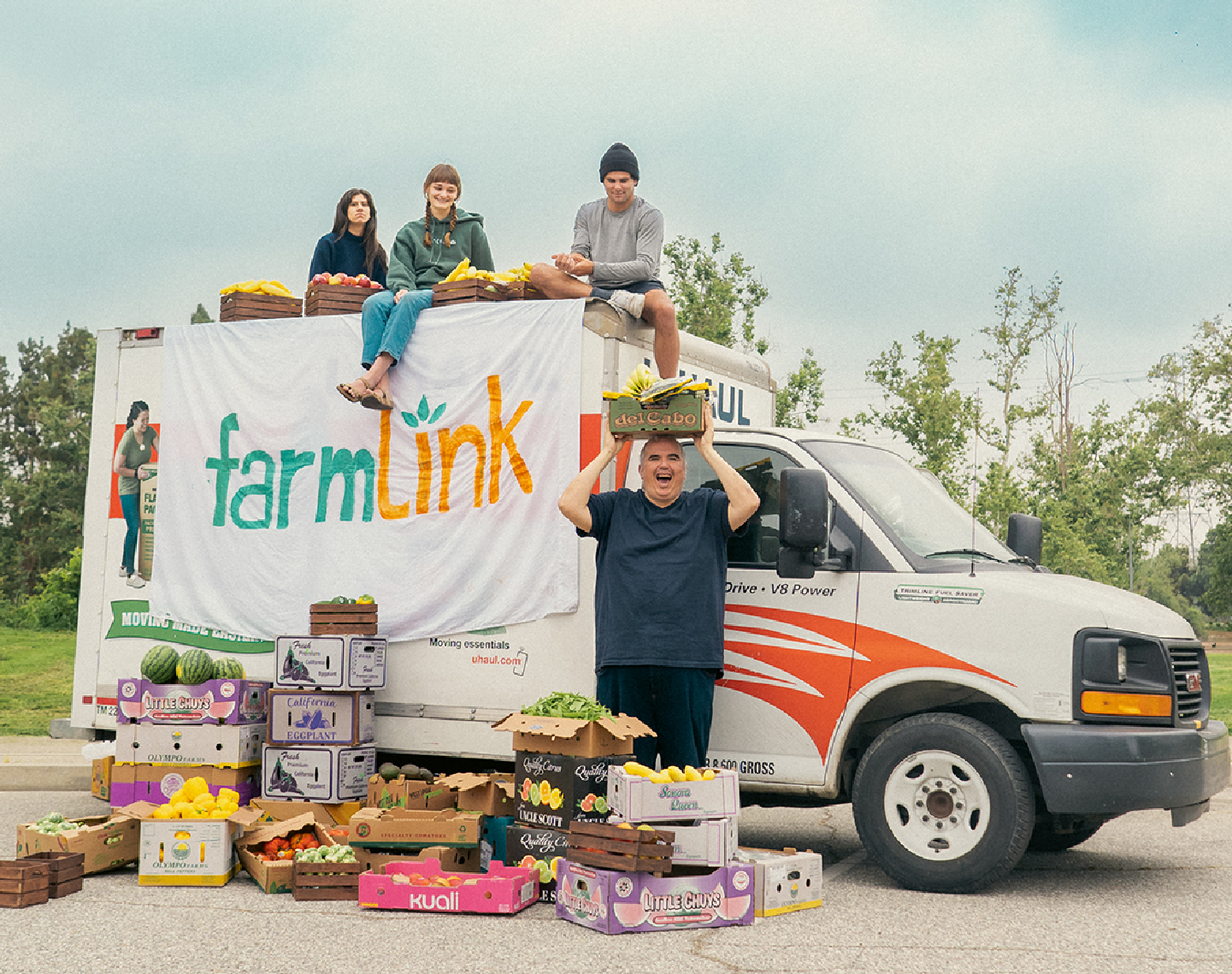Food insecurity impacts over 30 million people in the U.S. annually.
Distressing, right? Witnessing families struggling to provide, caught in the grips of food insecurity, breeds a profound sense of helplessness and powerlessness. We all yearn to contribute, to make a tangible difference in the face of such overwhelming adversity. Yet, all too often, we are left feeling ineffective in our efforts.
Nonprofit leaders frequently encounter this daunting sentiment with questions, like:
- How can we possibly address such monumental challenges?
- How do we prioritize love, kindness, and empathy in our actions?
- How do we transition from passive concern to active support for causes that matter to our communities?
My introduction to The Farmlink Project came via ABC World News Tonight, amidst the throes of a global pandemic. A group of remarkable college students noticed an alarming trend — nearly one in three of their peers were grappling with food insecurity, reliant on increasingly overburdened food pantries which often were unable to offer fresh produce to those in need.
This realization served as their call to arms. Unwilling to accept the status quo, they faced the formidable challenge head-on, refusing to accept “no” as an answer.
And so The Farmlink Project was born.
About The Farmlink Project: Empathy in Action
When I learned that my good friend, Nathan Chappell, was on their board, I knew I had to ask for an introduction.
Not just because of the nonprofit expert in me talking, but because of my own story. I grew up in a privileged household with plenty of food on the table, but after I moved on to college, the circumstances at home changed dramatically. At the end of their lives, my parents were homeless and relying on food from food banks. Suddenly, the issue of food scarcity became very real for my family.
When I met the Farmlink team, it was a full-circle moment for me.
They have a bold plan to permanently disrupt the food system (for the better), help the planet, decrease food waste and get fresh nutritional food into the hands of those who can seldom access it, and together we’re going to scale their efforts. If I’ve said it once, I’ve said it before, this is the nonprofit story of the future. This is HOPE.
The impact that their short documentary had is proof of that concept.
FarmLink sought to bridge the gap between the surplus of food produced on farms — amounting to approximately 35 billion pounds annually — and the dire needs of local food banks. Despite it being more cost-effective to discard this excess, Farmlink envisioned a different path. They embarked on a mission to repurpose still-viable food destined for landfills, directing it instead to families nationwide. It all started with a single U-Haul.
By challenging the inefficiencies of our food system, The Farmlink Project has injected unparalleled quantities of fresh food back into circulation.
Farmlink’s Impact Will Be Generational
Like The Farmlink Project’s innovative solution to the food waste problem, their potential is limited ONLY by resources. Recognizing this, we are wholeheartedly committed to securing a corpus fund to support this vital work in perpetuity.
This ambitious goal will enable The Farmlink Project to continue to scale their operations, reaching more farms, saving more food from waste, and feeding more families in need, forever. Resources on this scale will provide the stability to ensure the sustainability and continuity of their vision.
Why I Embrace My Partnership with The Farmlink Project
There are numerous reasons why working alongside The Farmlink Project fuels me. Their refusal to accept defeat, their innovative approach to a global issue, and the sheer impact of their work align with my deepest values. My personal history, punctuated by witnessing my own family’s transition from comfort to reliance on food banks, renders this partnership particularly close to my heart. Embracing The Farmlink Project signifies a commitment not just to a cause, but to a shared journey towards fixing a systemic failure, permanently.
In collaborating with FarmLink, it’s not merely about lending my expertise; it’s about being part of a collective effort to enact tangible, lasting change. This organization’s bold aspirations to revolutionize our food system resonate deeply, and I am committed to amplifying their impact, scaling their initiatives to transformative heights.
Their example is proof that the job of a fundraiser is not about money. It’s about making sure the power of storytelling helps as many people as possible understand the mission and the problem, so that everyone can get inspired and respond effectively to a call to action.
Farmlink is going to shatter expectations and redesign our food system, and I can’t wait to watch them do it.
If you want to be a part of the solution, you can make a donation to Farmlink today. You’ll immediately see the difference in how they thank their donors, engage you in the work and leverage your generosity for millions of people. They are the NONPROFITS OF THE FUTURE!
Consider this an invitation to reach out — let’s explore how we can amplify your organization’s impact through strategic fundraising efforts and shared values grounded in our lived experience.

